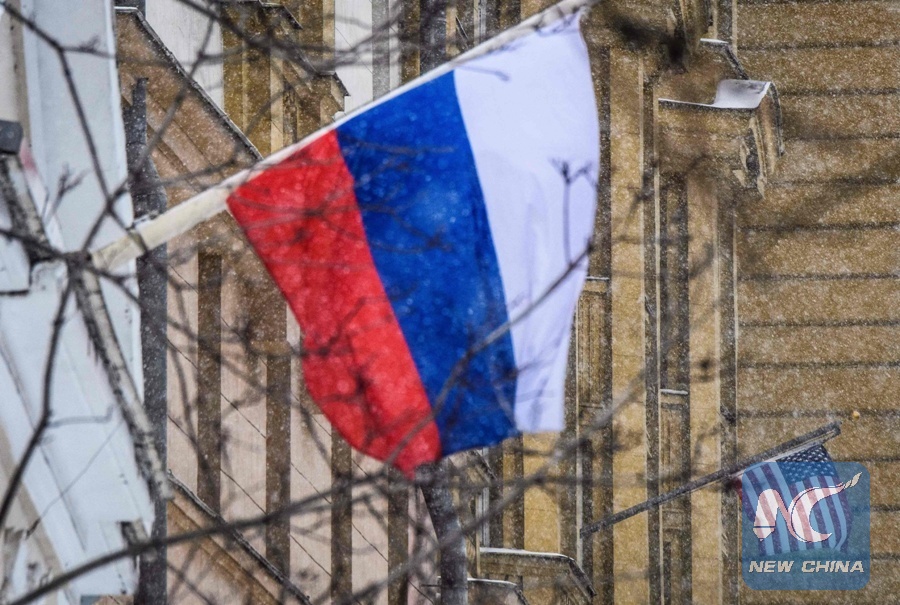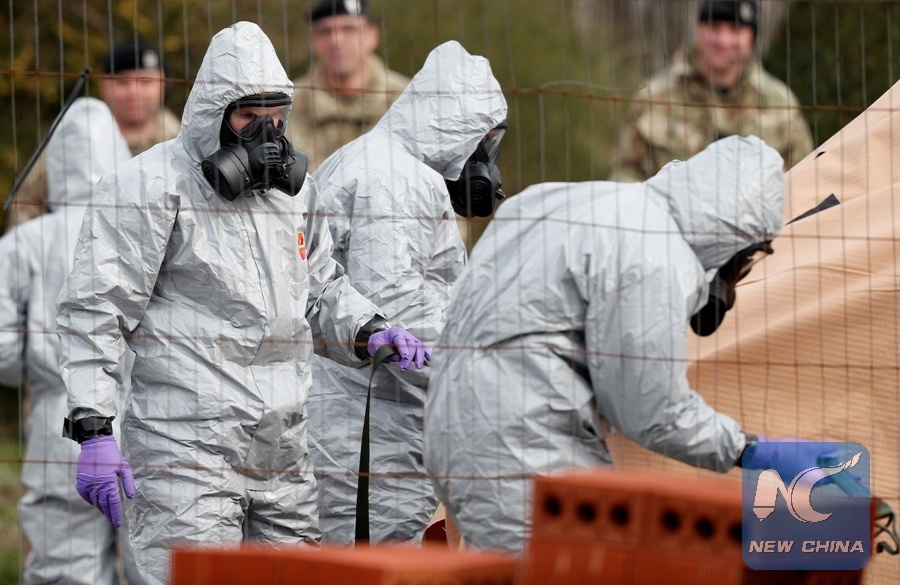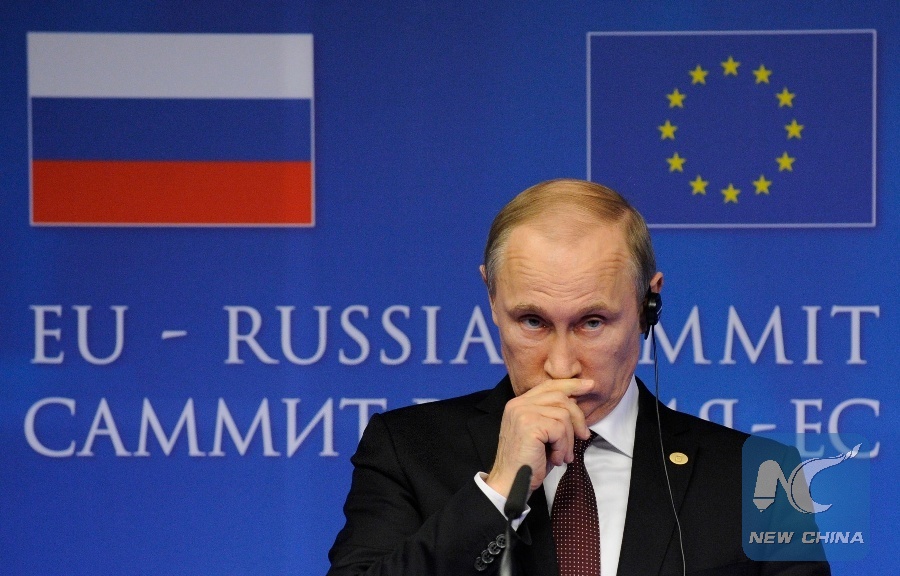
A Russian flag flies next to the U.S. embassy building in Moscow on March 27, 2018. (Xinhua/AFP)
WASHINGTON, March 28 (Xinhua) -- The United States on Tuesday called for setting up a joint mechanism to probe the nerve-agent attack on an ex-Russian spy and his daughter in Britain, amid escalating diplomatic confrontation with Russia.
U.S. State Department Spokesperson Heather Nauert said in a press briefing that Washington looks forward to the completion of investigation by the Organization for the Prohibition of Chemical Weapons, which was invited by Britain to collect and analyze the samples of the poisoning.
Former Russian double agent Sergei Skripal, aged 66, and his daughter Yulia were found unconscious on a bench outside a shopping center in Britain's southwestern city of Salisbury on March 4. They remain in critical condition in hospital.

British military personnel wearing protective coveralls work to remove a vehicle connected to the March 4 nerve agent attack in Salisbury, from a residential street in Gillingham, southeast England on March 14, 2018. (Xinhua/AFP)
Britain claims the pair was exposed to a nerve agent and holds Russia responsible, while the Russian government has denied any involvement in it.
Nauert told the press "We also hope, at the same time, that Russia will return to the UN Security Council and will agree to some sort of a mechanism like the joint investigative mechanism."
"We hope they (the Russians) will get back to that in the future. That would certainly be a good start for them," she added. "We would support what the UN agrees to go along with in putting something together that is just as strong as the joint investigative mechanism."
Last Wednesday, Russian Foreign Ministry official Vladimir Yermakov accused Britain of denying Russian access to the investigation at a briefing for foreign diplomats in Moscow.
Noting that the incident was "a terrorist attack against two Russian citizens," Yermakov said Russia will not accept conclusions of foreign experts, adding that it needs to carry out its own investigation.
Following the incident, Britain expelled 23 Russian diplomats, with Moscow expelling an equal number of British diplomats in response.

In this file photo taken on Jan. 28, 2014, Russian President Vladimir Putin gestures as he takes part in a joint press conference with EU Council president and European Commission president following an EU-Russia summit at the EU Headquarters in Brussels. (Xinhua/AFP)
In the fallout, by Tuesday, at least 144 Russian diplomats were ordered out by 24 western nations and the North Atlantic Treaty Organization, including 60 Russians from the United States, which Nauert said is "the largest single expulsion of Russians ever ordered" by the U.S. government.
In his protest, Russia Ambassador to the United States Anatoly Antonov said Monday that Moscow will give an adequate response to each case in the coming days.
Russian Foreign Ministry said later that the West's expulsion of its diplomats is an unfriendly step, and vowed to react to it accordingly.
Chinese Foreign Ministry spokesperson Hua Chunying called on countries concerned to avoid taking actions that could escalate tensions on Tuesday at a daily press briefing.
"China is opposed to the use of chemical weapons. Meanwhile, we also believe that the poisoning incident should be addressed properly through dialogue between Britain and Russia based on finding out the truth," Hua said.

